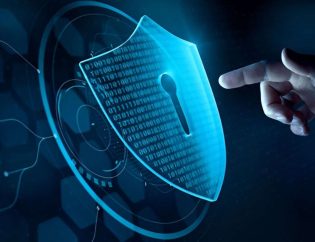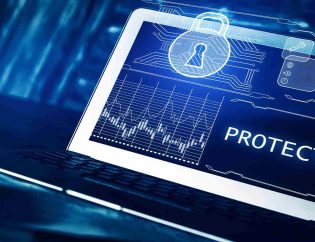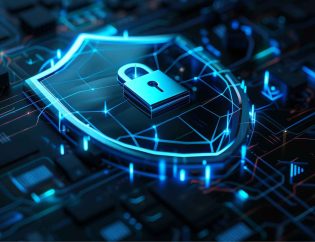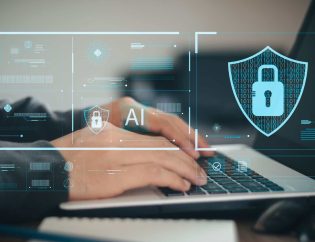
Introduction
What is endpoint protector? Endpoint protectors are essential tools that help safeguard an organization’s devices from cyber threats. Choosing the right endpoint protector is crucial for maintaining data security and protecting against unauthorized access. This guide explores the essential features and factors to consider in selecting the best endpoint protector for your organization.
What is Endpoint Protector?
An endpoint protector is a security solution designed to protect endpoints—devices such as computers, smartphones and tablets—against cyber threats. Endpoint protectors monitor and control access to sensitive data on these devices, ensuring they are secure from unauthorized access and malware.
In today’s digital landscape, endpoint protectors play a key role in cybersecurity. They allow companies to manage data security effectively across various devices, preventing data breaches and unauthorized data transfers.
Why is Endpoint Protection Important?
Why is endpoint protection important? As more businesses operate remotely and rely on digital devices, endpoints become primary targets for cybercriminals. Endpoint protection provides the following key benefits:
Data Security:
Protects sensitive information from being accessed or stolen.
Compliance:
Helps meet regulatory requirements for data protection.
Operational Continuity:
Reduces downtime by preventing security incidents.
Ensuring endpoint protection helps businesses maintain security, prevent data loss and build trust with clients and stakeholders.
How Does Endpoint Protection Work?
How does endpoint protection work? Endpoint protection solutions monitor, detect and respond to potential threats on devices connected to a network. Here’s how they work in a few simple steps:
Monitoring:
Continuously tracks endpoint activities to identify unusual behaviors.
Threat Detection:
Identifies potential malware, phishing attempts, or unauthorized access.
Response and Remediation:
Automatically or manually responds to threats by isolating affected devices and restoring compromised data.
Endpoint protection solutions use advanced algorithms and threat intelligence to keep data safe across all endpoints in a network.
What Does an Endpoint Protector Do?
What does an endpoint protector do? Endpoint protectors are designed to secure devices by controlling access, monitoring data transfers and preventing malware infections. They act as the first line of defense, ensuring that all endpoint devices comply with the organization’s security policies.
Endpoint protectors also allow for the centralized management of data security, providing IT teams with visibility and control over all connected devices. This functionality is crucial in organizations with extensive remote workforces or BYOD (Bring Your Own Device) policies.
Key Functions of an Endpoint Protector:
Data Loss Prevention (DLP):
Monitors and prevents unauthorized data transfers.
Device Control:
Regulates device access to network resources.
Real-Time Monitoring:
Provides continuous oversight of endpoint activities.
Factors to Consider When Choosing an Endpoint Protector
Choosing the right endpoint protector depends on several factors. Here are essential considerations to ensure you find the best fit for your organization’s needs:
1. Security Features
Look for a solution that offers comprehensive security features, including data loss prevention, encryption and real-time monitoring. Robust features ensure that your endpoints remain secure from multiple types of threats.
2. Ease of Use
An effective endpoint protector should be user-friendly. Ensure that your chosen solution offers an intuitive dashboard and simple deployment to facilitate seamless integration into your existing systems.
3. Compatibility
Check what is the operating system of the endpoint protector server to ensure compatibility with your organization’s devices. Most endpoint protectors support major operating systems like Windows, macOS and Linux.
4. Scalability
Choose an endpoint protector that can scale with your organization. This feature is essential for growing businesses that may need to protect additional devices over time.
5. Customer Support
Ensure that the provider offers reliable customer support to assist with troubleshooting and provide guidance when needed.
Bullet Points: Key Considerations
Customer Testimonial
“Since adopting Hyper Secure’s endpoint protector, we have experienced a significant reduction in security incidents. Their solution offers comprehensive protection and is easy to manage.”
— Emily Roberts, IT Director
How Hyper Secure Can Help
At Hyper Secure, we specialize in providing comprehensive endpoint protector solutions tailored to your organization’s needs. With advanced data loss prevention, device control and real-time monitoring features, our endpoint protectors ensure that your data remains secure across all devices. Trust Hyper Secure to help you safeguard your digital assets with ease and reliability.
Conclusion
Selecting the right endpoint protector is essential for securing your organization’s devices and data. By understanding what is endpoint protector and the key features to look for, businesses can enhance their cybersecurity and protect against evolving threats. At Hyper Secure, an Endpoint Security Company, we offer solutions that combine robust protection with ease of use, helping you maintain a secure digital environment.
FAQs
1. What is endpoint protector?
An endpoint protector is a security solution designed to protect devices from cyber threats by monitoring and controlling data access.
2. What does endpoint protection mean?
Endpoint protection refers to the security measures taken to secure devices connected to a network, preventing unauthorized access and malware attacks.
3. How does endpoint protection work?
Endpoint protection works by monitoring device activities, detecting threats and responding to incidents in real-time to protect data.
4. Why is endpoint protection important?
Endpoint protection is crucial to secure sensitive data, ensure compliance with regulations and reduce the risk of security breaches.
5. What is the operating system of the endpoint protector server?
The operating system for endpoint protector servers typically includes support for Windows, macOS and Linux, but compatibility should be confirmed with each provider.








